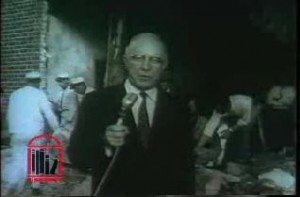
In the early hours of October 12, 1958, fifty sticks of dynamite exploded in a recessed entranceway at the Hebrew Benevolent Congregation, Atlanta’s oldest and most prominent synagogue, more commonly known as “the Temple.” The incident was but the most recent in a string of bombings throughout the nation affecting churches and synagogues associated with the Civil Rights movement. For Atlanta’s Jewish community, the event evoked memories of the notorious lynching of Leo Frank half a century earlier, arousing fears of anti-Semitism that had waned, but never disappeared. Rather than react with indifference, or worse, however, Atlanta’s business, media, and political elites denounced the bombing in no uncertain terms and launched an ambitious campaign to raise funds for the synagogue’s repair. Although the suspects were later acquitted, the outpouring of local support helped to dispel fears of anti-Semitic violence, and the moderate consensus that emerged in the bombing’s wake helped to distinguish Atlanta as “the city too busy to hate.”
The Civil Rights Digital Library includes a WSB-TV newsfilm clip (courtesy of the Walter J. Brown Media Archives and Peabody Awards Collection) of mayor William Hartsfield speaking about violence against African Americans after the Temple bombing from October of 1958.
See also the New Georgia Encyclopedia articles on Melissa Fay Greene, author of The Temple Bombing (1996), and on Jacob Rothschild, rabbi of the Hebrew Benevolent Congregation during the time of the bombing.


